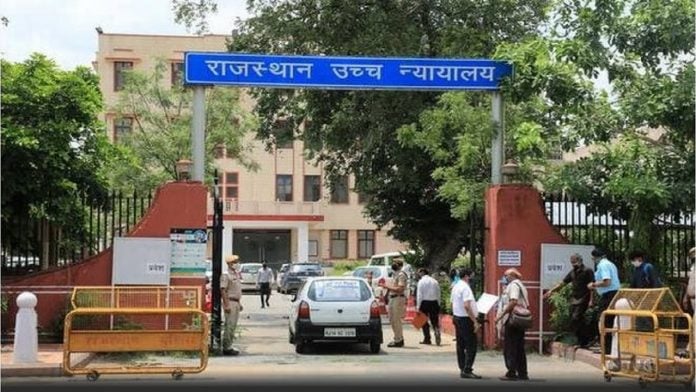By Aruneshwar Gupta
Law and legal institutions are young forever with the dynamic energy existing within, which continues to evolve with every human relationship coming into existence. They ceaselessly, in spite of minor abrasions, march forward with poise, dignity and magnanimity, to protect and compensate the suppressed wills and unheard cries and also punish those who commit breach and violate law. Courts are the hub of social balance as it resolves conflicts and disputes from the conception of being till the issue of secession certificate.
Roscoe Pound in Justice According to Law brilliantly penned:
“We have always known that the judicial process does not at all times and in all places confirm absolutely and in all respects to our ideal of it. Despite all the checks with which we surround it, it does not come out in every case entirely as we could wish. But the striving for the ideal, I repeat, goes far to realize the ideal. It is the approximation to our ideal of it which is significant, not the falling short, which we seek continually to control and to reduce to a minimum.” (Emphasis supplied)
Greater Rajasthan was formed on March 30, 1949 with Sawai Man Singh II as the Rajpramukh and Hiralal Shastri as the Chief Minister. On that date High Courts were functioning in five states – Jaipur, Jodhpur, Bikaner, Udaipur and Alwar.
On August 29, 1949, Rajasthan High Court Ordinance 1949 was notified and High Court of Rajasthan was inaugurated at Jodhpur by the Rajpramukh. Oath was administered to Justice K.K. Verma from Allahabad as Chief Justice of Rajasthan and the following 11 judges representing different states as judges of High Court of Rajasthan:
1. Justice Naval Kishore and Justice Amer Singh of Jasol from Jodhpur
2. Justice K.L. Bapna and Justice Mohd. Ibrahim from Jaipur
3. Justice J.S. Ranawat and Justice Shardul Singh Mehta from Udaipur
4. Justice Khem Chand Gupta from Kota
5. Justice Tirlochan Dutt from Bikaner
6. Justice D.S. Dave from Bundi
7. Justice K.K. Sharma from Bharatpur
8. Justice Anand Narain Kaul from Alwar
The principal seat of High Court was kept at Jodhpur and benches at Jaipur, Udaipur, Bikaner and Kota. Shri G.C. Kasliwal was appointed as the first Advocate General of Rajasthan.
On January 26, 1950, the Constitution of India came into effect, Rajasthan was given the status of Class ‘B’ State and the strength of the judges was reduced to 6. It was essential that the judges must confirm to the eligibility provided under the Constitution. The result was that Chief Justice K.K. Verma, Justice Khem Chand Gupta, Justice Trilochan Dutta, Justice Sardool Sing Mehta retired on January 24, 1950 and Justice A. N. Kaul on March 3, 1950. Justice Naval Kishore was appointed as the acting Chief Justice and continued till January 1, 1951 when Justice K.N. Wanchoo from Allahabad was sworn in as Chief Justice on January 2, 1951. Chief Justice K.N. Wanchoo continued as Chief Justice till August 10, 1958 when he was elevated as a judge of the Supreme Court of India. Justice K.N. Wanchoo completed a tenure of 7 years, 7 months, 12 days—the longest tenure by any Chief Justice of Rajasthan.
From May 22, 1950 benches at Bikaner, Kota and Udaipur were abolished, but Jaipur Bench continued to function. In the vacancy caused two eminent lawyers – I.N. Modi (29.01.1953) from Jodhpur and D.M. Bhandari (26.08.1955) from Jaipur were elevated to the Bench. Jaipur bench was abolished in 1958 and was re-established on 31.01.1977.
Forty Chief Justices and 200 puisne judges totaling to 240 judges have been elevated as judges of Rajasthan High Court. Fifty three of them have been from other High Courts. Eight judges had two tenures either because of non-confirmation and reappointment or transfer to other High Court and ghar waapasi. Twenty three Chief Justices and judges have been elevated to Supreme Court, 8 of them having Rajasthan as their Permanent High Court (PHC) and one as Chief Justice of India.
Chief Justice Dipak Misra in his foreword to Understanding Supreme Court Better – 151 Facts You Need To Know beautifully articulated:
“Information, sometimes is perceived as an unhealthy substitute for knowledge. On certain occasions, it is pointed out that knowledge is lost in information. Though these observations characterize and, in a way, distinctly compartmentalize between ‘knowledge’ and ‘information’, yet a pregnant one, there are situations, places and institutions where information has the effect of potentiality to assume the position and platform of knowledge. However, it has to satisfy certain condition precedent i.e., precision, terminological exactitude and sincerity of effort…”
With its nobility, fairness, integrity and deep understanding, the High Court has continued to reach the common man. Looking forward for many more glorious and wonderful years, delivering justice to all as we have the brightest and beautiful minds on the bench, relentlessly supported by a highly experienced, knowledgeable and skilled bar.
-Aruneshwar Gupta is a Senior Advocate


